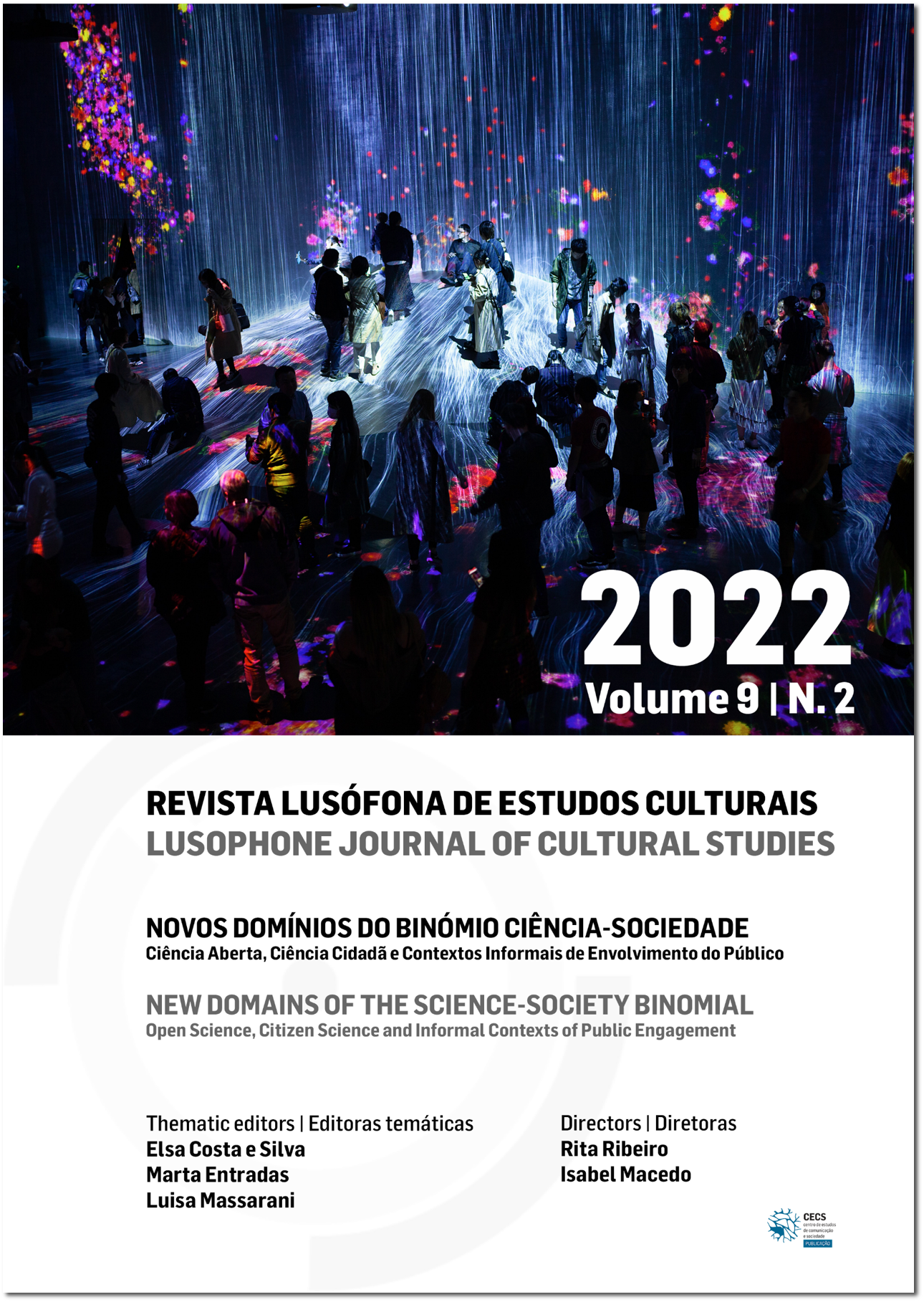Interview With Eloy Rodrigues: “There Will Be No Open Science If the Excessive and Wrong Use of Metrics Is Not Abandoned”
DOI:
https://doi.org/10.21814/rlec.4044Abstract
Eloy Rodrigues is a member of the Expert Group on Science 2.0/Open Science of the European University Association, representing the Council of Rectors of Portuguese Universities. Deeply aware of open science issues and one of the main stakeholders of this movement in Portugal, he is the director of the Documentation and Library Service of the University of Minho (UMinho) and one of the main advocates for the adherence to open science practices and for the inclusion of open access in institutional policies. Eloy Rodrigues has coordinated UMinho’s participation in more than a dozen projects (such as OpenAIRE, https://www.openaire.eu/, and FOSTER, https://www.fosteropenscience.eu/) funded by the European Union and concerning repositories and open science. He is a distinguished player in implementing open access from institutional repositories. He was the Chairperson of the Executive Board of the Confederation of Open Access Repositories (https://www.coar-repositories.org/) from 2015 to 2021 and is, since 2008, the coordinator of the UMinho team that develops the project Repositórios Científicos de Acesso Aberto de Portugal (Open Access Scientific Repositories of Portugal; www.rcaap.pt).
Downloads
References
Bordons, M., Fernández, M., & Gómez, I. (2002). Advantages and limitations in the use of impact factor measures for the assessment of research performance. Scientometrics, 53(2), 195–206. https://doi.org/10.1023/A:1014800407876
Cole, N. L., Reichmann, S., & Ross-Hellauer, T. (2022). Global Thinking. ON-MERRIT recommendations for maximising equity in open and responsible research (1.0). Zenodo. https://doi.org/10.5281/zenodo.6276753
Confederation of Open Access Repositories. (s.d.). The Notify project. https://www.coar-repositories.org/notify/
Hicks, D., Wouters, P., Waltman, L., Rijcke, S., & Rafols, I. (2015). Bibliometrics: The Leiden Manifesto for research metrics. Nature, 520, 429–431. https://doi.org/10.1038/520429a
Irwin, A. (1995). Citizen science: A study of people, expertise and sustainable development. Routledge.
Paris Call on Research Assessment, fevereiro de 2022, https://osec2022.eu/paris-call/
Ross-Hellauer, T., Fecher, B., Shearer, K., & Rodrigues, E. (2019, novembro). Pubfair: A distributed framework for open publishing services (Versão 2). Confederation of Open Access Repositories. https://www.coar-repositories.org/files/Pubfair-version-2-November-27-2019-2.pdf
San Francisco Declaration on Research Assessment, 16 de dezembro, 2012, https://sfdora.org/read/
UNESCO Recommendation on Open Science, novembro de 2021, https://unesdoc.unesco.org/ark:/48223/pf0000379949.locale=en
Downloads
Published
How to Cite
Issue
Section
License
Copyright (c) 2022 Elsa Costa e Silva

This work is licensed under a Creative Commons Attribution 4.0 International License.
Authors own the copyright, providing the journal with the right of first publication. The work is licensed under a Creative Commons - Atribuição 4.0 Internacional License.








